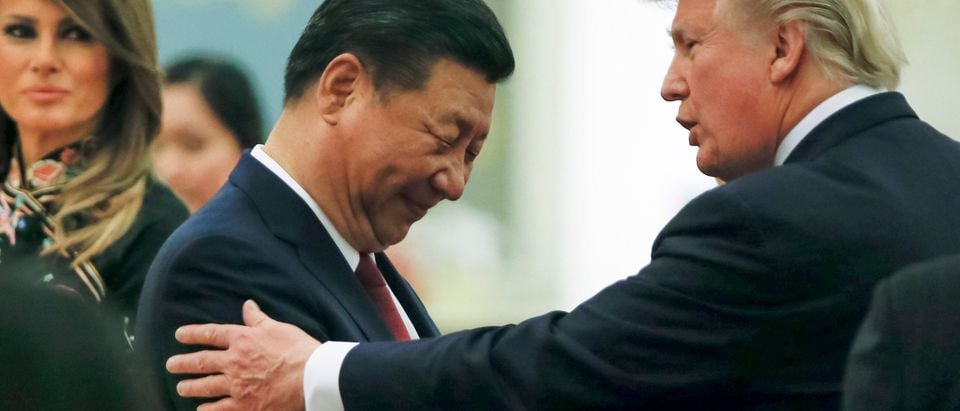While some American companies are distancing themselves from China’s predatory trade practices and horrendous human rights record, others remain entranced by the mirage of riches from doing business in the Communist nation.
The entertainment industry is a particularly egregious offender. China limits foreign movie producers to a few dozen big films per year, and Hollywood’s six major film studios lust for more access. It’s not a coincidence that you haven’t seen many features lately about Tibetan, Uyghur concentration camps or other topics that aren’t flattering to the Chinese Communist Party.
The producers of the sequel of “Top Gun” even airbrushed the Japanese and Taiwanese flags off of Tom Cruise’s iconic aviator jacket to make the movie marketable in China. So much for America’s democratic allies. Hollywood is turning its back on American values and importing Chinese censorship for a few dollars more.
The entertainment business isn’t alone. Tesla, which has benefitted mightily from U.S. tax credits and subsidies that exceeded $700 million last year, just started shipping cars made in China. Earlier this year, Tesla CEO Elon Musk celebrated the groundbreaking of a $140 million factory outside of Shanghai to enable the company to avoid tariff costs.
Furthermore, Tesla became the only non-Chinese car manufacturer exempt from a 10 percent tax after Musk cozied up to Chinese Transport Minister Li Xiaopeng during a September meeting, a move some called a “gift to Tesla by the Chinese government.
Incredibly, Musk’s move came just one day after President Trump’s call for American businesses to move production out of China.
Inexplicably, Musk remains the point man on several giant government contracts, including in sensitive national security areas like space.
Tesla is joined by companies like American Express, Starbucks, the National Basketball Association (NBA), and Apple in putting money before values when it comes to China.
American Express recently touted Chinese propaganda by claiming Taiwan as a territory of China. Starbucks, whose CEO opposes Americans’ gun rights, is aiming to open 3,000 locations in China over the next several years.
Perhaps more alarmingly, other companies have directly undermined American values, kowtowing to Beijing censors. The NBA’s response to China’s furor over Houston Rockets general manager Daryl Morey’s October tweet supporting pro-democracy protests in Hong Kong was widely viewed as lackluster, acquiescing to Beijing’s aim of global censorship.
Apple removed HKmap.live from its app store, which was used by pro-democracy protesters in Hong Kong to avoid abusive police.
By contrast, other American companies are rallying behind President Trump and his call to look for alternatives to Chinese markets.
HP Inc and Dell Technologies are considering moving up to 30 percent of laptop production out of China. Hewlett Packard Enterprise is working to diversify its supply chain. According to a May 2019 survey by AmCham Shanghai, approximately 40 percent of U.S. companies are partially relocating supply out of China.
But some businesses never seem to see the Chinese market for what is often is—a dangerous mirage. According to a recent CNBC poll, over 20 percent of U.S. companies claim that China has stolen their intellectual property within the last year. Far from petty shoplifting, the U.S. Trade Representative estimates that the U.S. loses between $225 to $600 billion per year. Moreover, these thefts aren’t limited to the assets of private corporations; China is widely accused of stealing classified military technology, such as Lockheed Martin’s F-35 fighter jet.
Now is the time for U.S. consumers, workers, companies, and the government as a whole to evaluate the cost of doing business with corporations who toe Beijing’s line. Shareholders and boards of directors need to be made aware of the risks to the businesses they control.
In order for President Trump to secure fair trade with China, American companies should support his call to divest from China, not continue to weaken America’s negotiating position with billions in investments. Our own companies should never view supporting America’s greatest economic and national security adversary as a winning bet.
Christian Whiton (@ChristianWhiton) was a State Department senior adviser in the Donald J. Trump and George W. Bush administrations. He is a senior fellow at the Center for the National Interest and is the author of “Smart Power: Between Diplomacy and War.”
The views and opinions expressed in this commentary are those of the author and do not reflect the official position of The Daily Caller.


